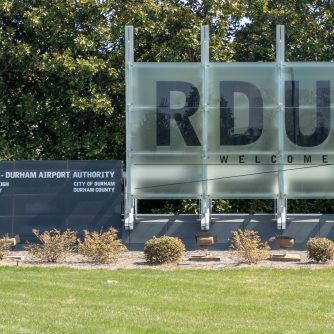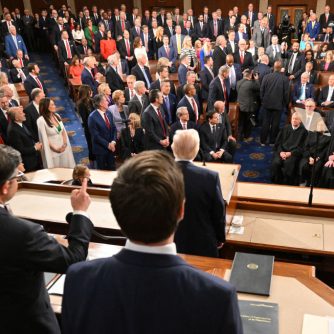On this episode of Carolina Newsmakers, Gary Salamido, President and CEO of the North Carolina Chamber of Commerce, joins Don Curtis to discuss the state’s economic progress, infrastructure needs, and future challenges. Salamido provides insight into the Chamber’s efforts to ensure North Carolina remains a leader in business development while addressing workforce and infrastructure demands.
Salamido begins by explaining the Chamber’s mission to maintain North Carolina as the best place to grow private sector jobs. He highlights the collaborative spirit that defines the state’s economic strategy, crediting long-term planning initiatives like Vision 2030 for making North Carolina a top business destination. Vision 2030, which began in 2013, focuses on three pillars: education and talent supply, competitive business climate, and infrastructure and growth leadership.
The discussion emphasizes the state’s remarkable transformation from a traditional manufacturing base to a diverse economy that includes advanced manufacturing, life sciences, and technology. Salamido notes that North Carolina’s ability to attract high-value projects, such as Toyota’s electric battery plant, is driven by investments in infrastructure and workforce development.
Workforce challenges, however, remain a top concern. Salamido points out that while the state benefits from a robust community college system and university network, there’s an urgent need to address childcare and housing to support workers. He shares that childcare availability has emerged as a critical issue for attracting and retaining talent, with the Chamber now prioritizing innovative public-private solutions.
Salamido also discusses the state’s infrastructure, highlighting recent legislative investments of $1 billion for water, sewer, and transportation projects. He emphasizes the importance of modernizing the state’s funding model for infrastructure, advocating for the removal of caps on public-private partnerships and exploring diversified funding streams. Transportation challenges, including road congestion and the need for sustainable funding as gas tax revenues decline, are key priorities for the Chamber.
Agribusiness, manufacturing, and military sectors also play vital roles in North Carolina’s growth. Salamido shares details about the Chamber’s work with the agricultural community to develop a strategic plan for sustaining and enhancing the $100 billion industry. He also highlights the importance of supporting military personnel and their families transitioning into civilian careers, particularly in rural areas.
Salamido acknowledges the challenges of growth, including the need to address regional disparities. While areas like the Triangle and Charlotte thrive, rural regions face slower development. The Chamber is working to bridge these gaps by promoting infrastructure investment, workforce training, and regional collaboration.
The conversation touches on the role of research universities in driving innovation and attracting capital to the state. Salamido praises institutions like UNC Chapel Hill, NC State, and Duke University for their contributions to life sciences and technology, emphasizing their importance in sustaining North Carolina’s competitive edge.
As the discussion concludes, Salamido reflects on the lessons learned during the COVID-19 pandemic. He underscores the importance of business continuity and resiliency planning, along with strengthening relationships between businesses and government before crises occur. Looking ahead, he shares the Chamber’s goals to maintain North Carolina’s status as CNBC’s top state for business, diversify infrastructure funding, and foster public-private partnerships that support long-term growth.





